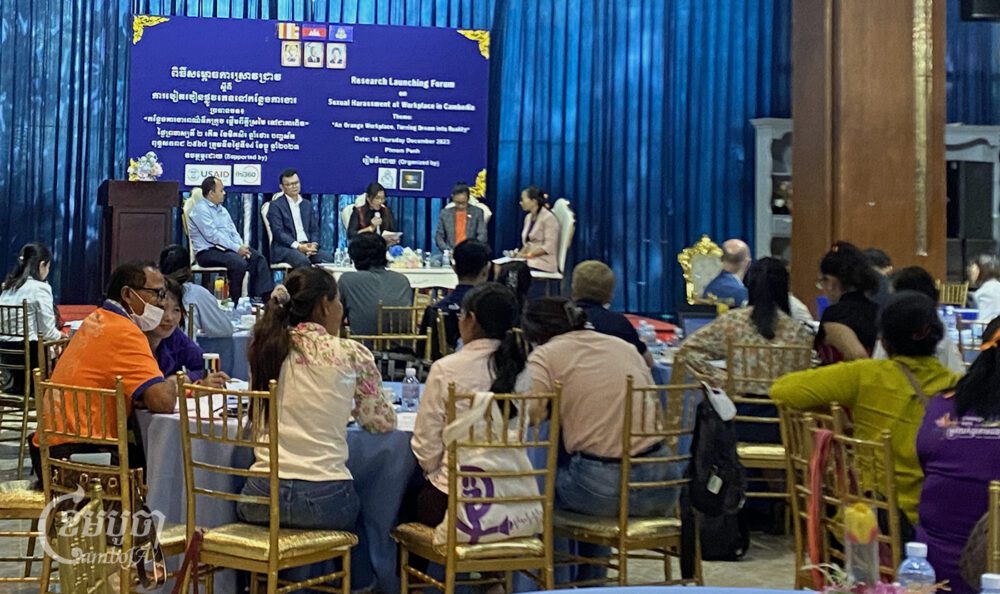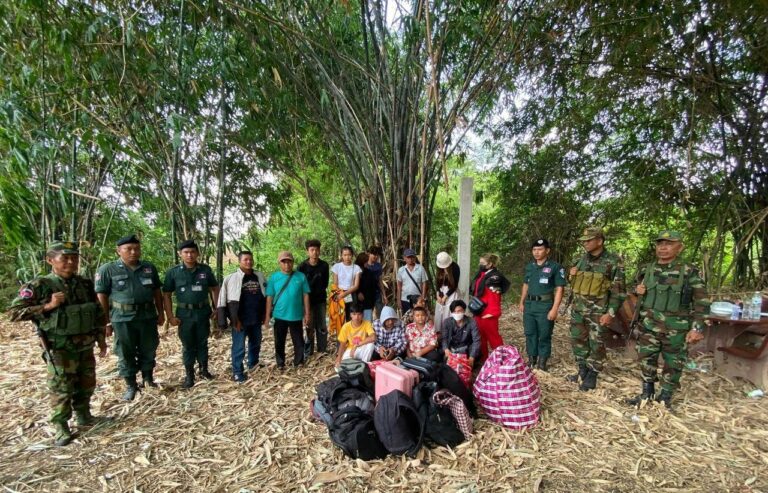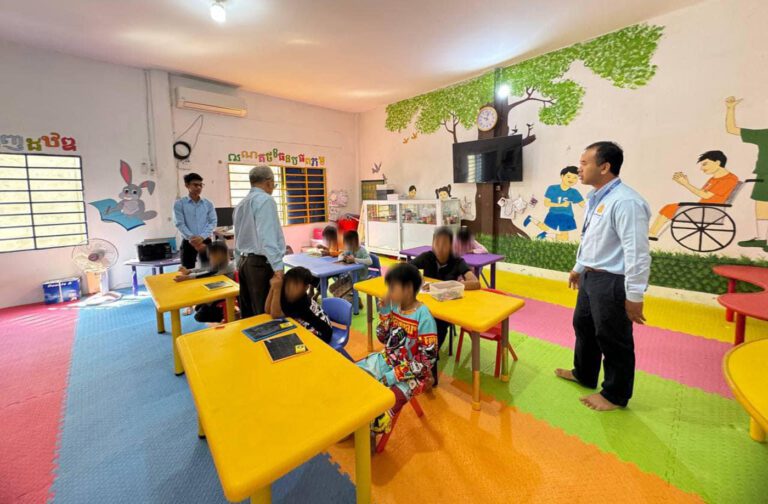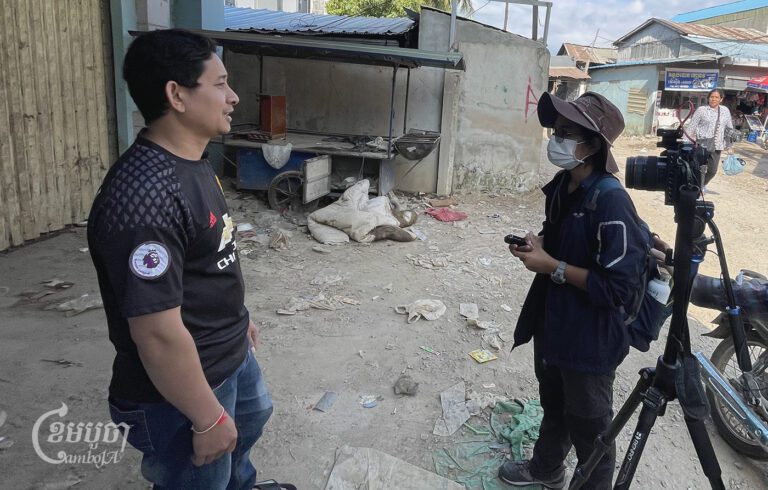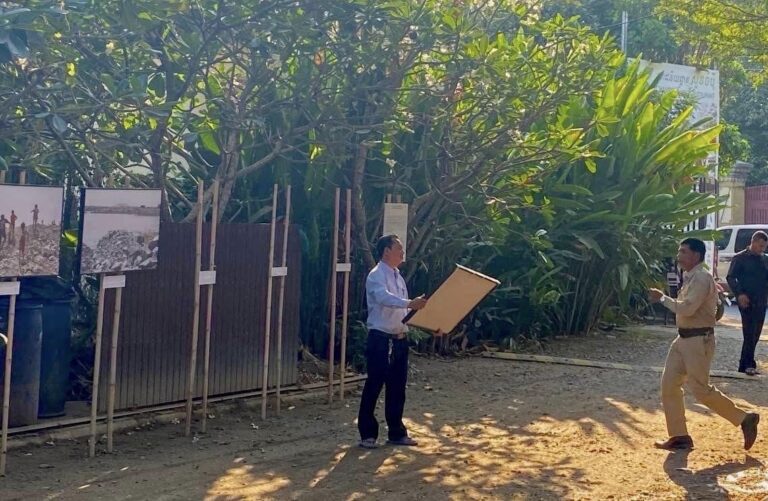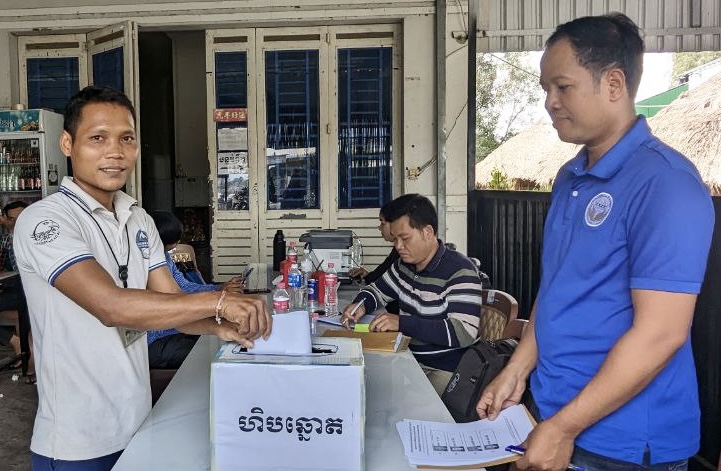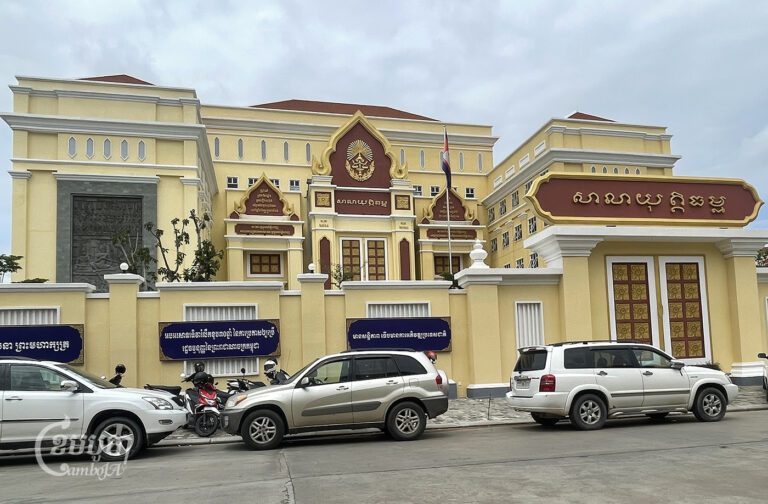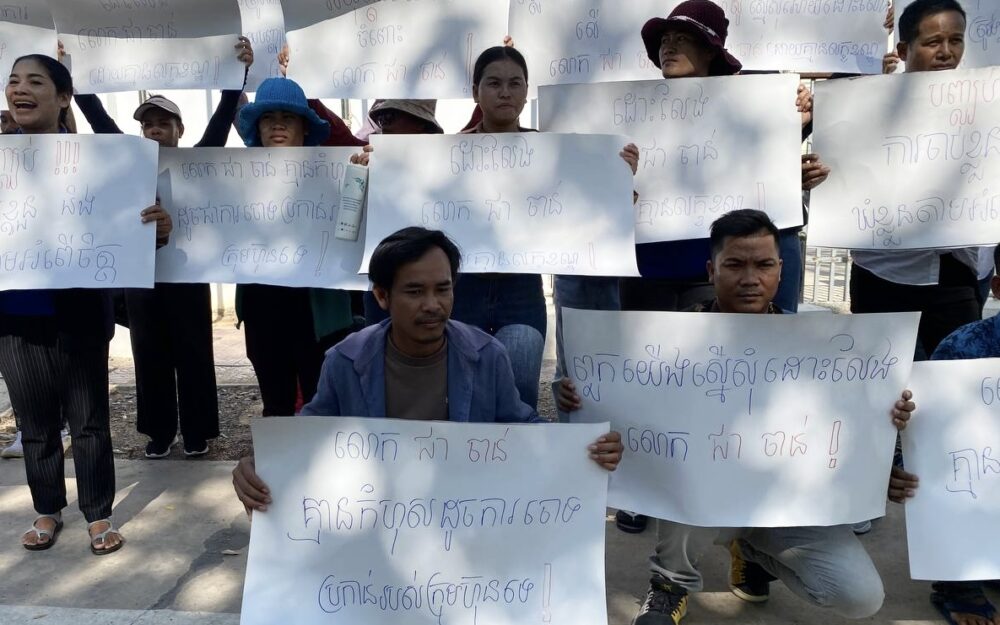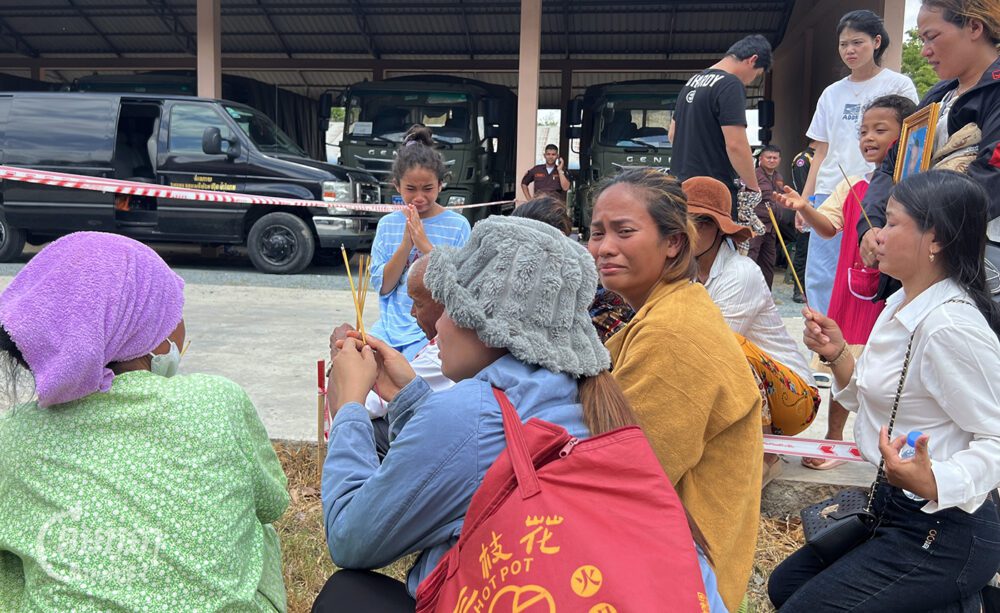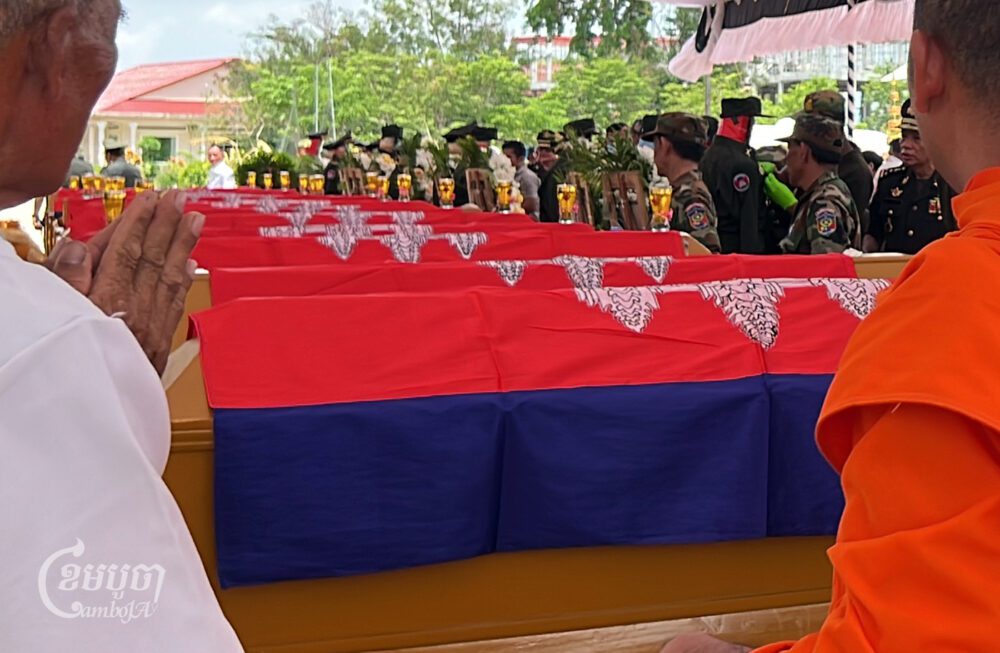A study on workplace sexual harassment by Banteay Srei and Love is Diversity has found that 30% of women, 37% of men, and 90% of LGBT people have experienced some form of violation at work. Male and female employees of all ages also claimed that they have previously quit their jobs due to sexual harassment and felt uncomfortable going to work.
On December 14, 2023, NGOs Banteay Srei and Love is Diversity organized a forum themed “An Orange Workplace, Turning Dreams into Reality” as well as launch their study, “Sexual harassment experienced by formal workers in Cambodia”. More than 50 participants comprising representatives from the Ministry of Labor and Vocational Training and communities in the province, NGO members and LGBT groups attended the event.
The study by Banteay Srei was aimed at helping employees in the sector understand and share their experience of workplace discrimination and violation. It was carried out in Phnom Penh, and Battambang and Siem Reap provinces, between July and November 2023 involving 400 formal workers. They consisted of 190 female workers, 190 male workers, and 20 LGBTQIs.
Kann Sopheak, project manager of CARE Cambodia, said the research findings, which were accepted by stakeholders, reveal the reality of what is happening in the society today.
These were only 400 workers in two provinces, she said of the sample size, yet there were problems of sexual harassment in the workplace. “What about the places we have not researched yet? What could be happening there?
“We want to see the government, through the National Assembly, ratify the 1990 ILO Convention on the Elimination of Violence and Harassment in the Labor World and clearly define the various forms of harassment.
“Sexual harassment is a serious harm to the victim and is not visible to the naked eye as it takes many forms. It requires the implementation of protective policies in the garment sector, and also support and acceptance of victims’ reports,” she said.
Quoting the findings of the research, Kuy Thida, co-founder of Love is Diversity, said LGBT people still suffered high levels of sexual harassment in the workplace, which was comparable to a previous study.
Transgenders, especially, face the most challenges in the workplace, with some being rejected at the interview level before they are offered a chance to work.
According to a 2019 Cambodian Center for Human Rights study, 92% of LGBTIQ people believed that they do not have equal opportunities to jobs like the rest of the population in the country. Some 21% have been refused a job because of their sexual orientation, gender identity and expression, and sex characteristics (SOGIESC), and 65% of LGBTIQ individuals, who were denied a job because of SOGIESC, said they have experienced multiple rejections. In addition, 25% of LGBTIQ people reported that they hid their SOGIESC during interviews in order to secure a job to support themselves.
The report also shared that LGBT people who have been facing difficulties looking for a job, claimed that they were rejected as soon as they arrived due to their dressing and appearance. “I think if this problem persists, it would impact their mental health,” Thida said.
On behalf of the LGBT community, he urged “stakeholders to find a solution and provide legal protection against harassment for us to get our dream job. An orange workplace, turning dreams into reality”.
Hong Sochea, an independent development and social inclusion researcher, appealed for safe access for people with disabilities in the workplace in private and public sectors. There should be preparation and care for disabled people, and no harassment or discrimination by way of word or gesture laid on them, he said.
Sochea, who was glad that physically disabled people spoke up about their challenges in light of the research, viewed that the study was also a message to small and large business owners to accept disabled people for work. “It’s because they have the right education and skills to get the job of their dreams.”
According to San Kimhong, deputy secretary of state of the Ministry of Labor and Vocational Training, Cambodia has participated in campaigns to eliminate or prevent violence against women and gender in line with the government’s policy, which considers women as the backbone of the country.
“Sexual harassment is a form of persecution against women, which has negative implications on families, societies, the economy and nation. The ministry and relevant departments continue to implement government policies to ensure gender equality, leadership in women and girls, and equal opportunities in all fields.”
Preung Sam Ath, a community representative from Battambang province, said she was pleased to understand what sexual harassment in the workplace is, and plans to share the knowledge with her community.
“I’m very happy to learn more about this issue. In the past, I did not know what harassment was, and always thought it was just a joke. I will continue to share what I have learned with my community.”
In addition, Sam Ath requested relevant ministries to raise more awareness by educating people and increasing training in communities.


